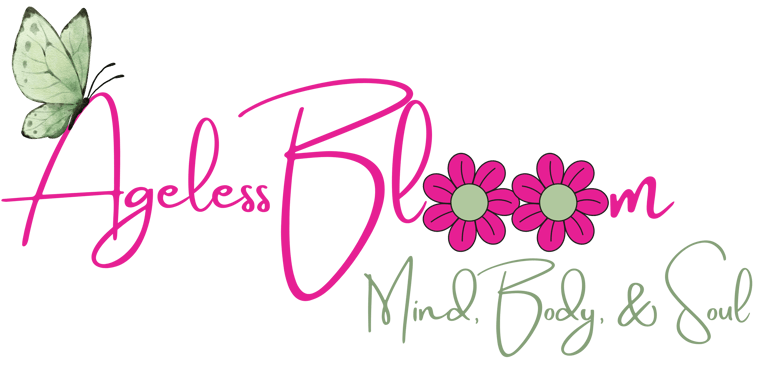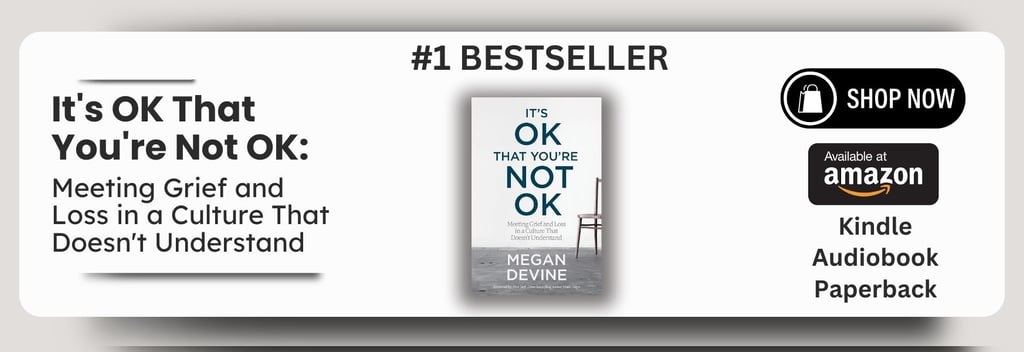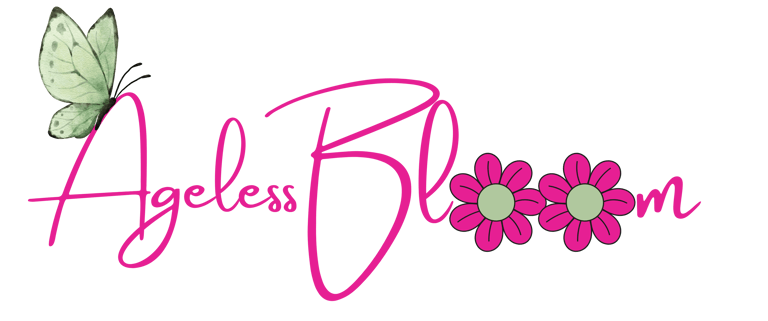How the Loss of a Parent Reshapes Your Friendships and Relationships
The loss of a parent shifts how you connect with others. Here's how grief reshapes friendships and relationships in unexpected, heartfelt ways.
RELATIONSHIPS
Shari Smith
3/1/202513 min read
As an Amazon affiliate, we earn commissions at no extra cost to you if you click our links and make a purchase.
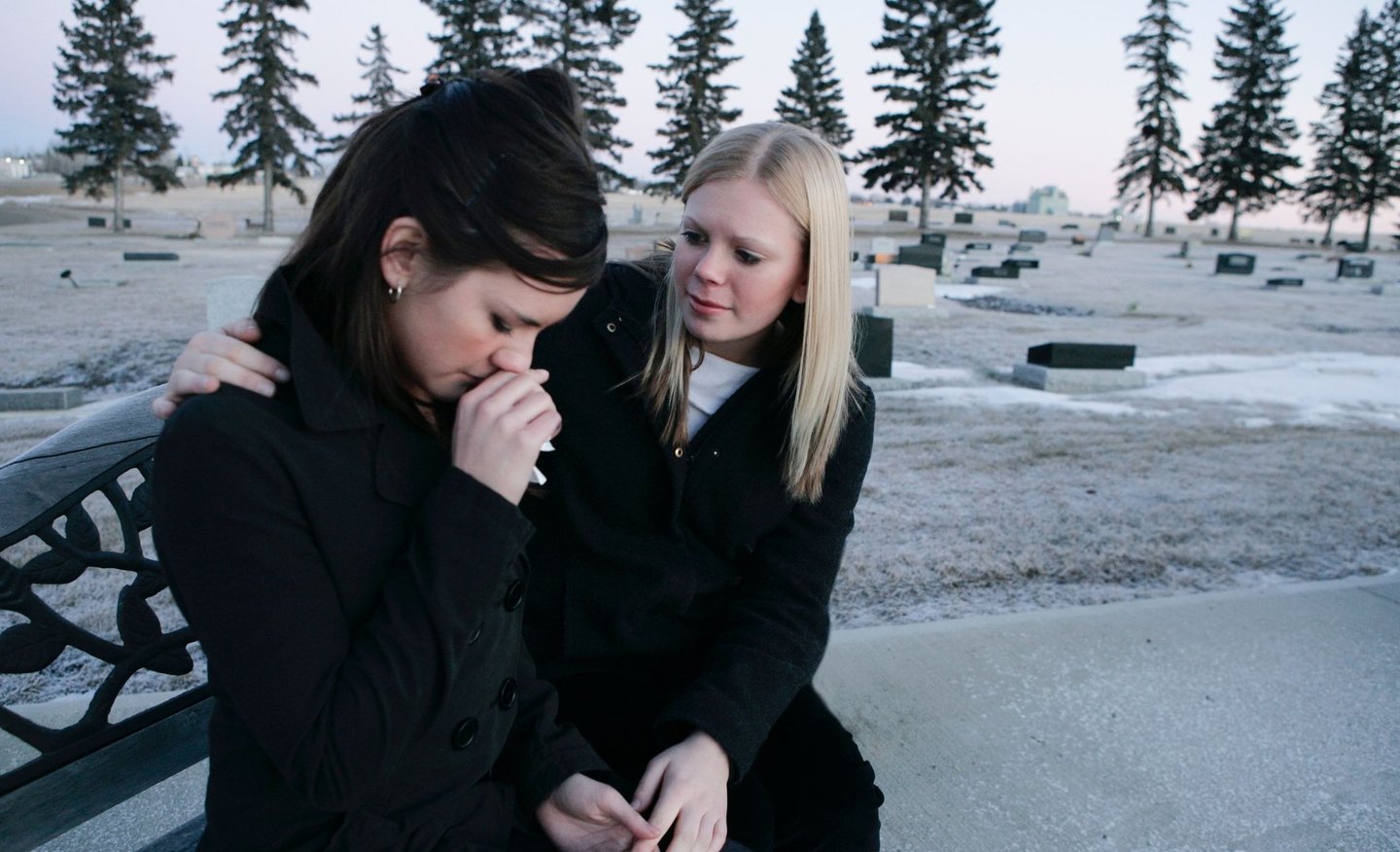

Losing a parent shakes your world in ways you never expect.
Their absence creates an emptiness that ripples far beyond your daily life, often touching the relationships you once thought were solid.
You may find yourself feeling disconnected from friends who can’t quite understand your grief, or you might notice relationships shifting as your needs and priorities change.
It’s an isolating space to navigate, but it’s also one so many women share.
This journey brings unspoken challenges—like explaining your pain when words fail, or learning to accept that some friendships may never feel the same.
But it also holds the possibility of finding deeper connections with those who truly see you.
The loss of a parent doesn’t just reshape your relationships—it reveals which ones are built to last.
How Grief Shapes Emotional Connections
When you lose a parent, the grief doesn’t stay confined to one part of your life. It branches out, touching everything—from how you see yourself to how you connect with others.
Grief has a way of reshaping the emotional connections you share with your friends, family, and even yourself.
The loss leaves an imprint that you might not even fully notice until you try to navigate relationships that once felt easy or natural. Let’s explore how this journey unfolds.


Even when you’re surrounded by people who care for you, grief can feel like a solitary experience. It’s a paradox, isn’t it?
You’re not truly alone, but the weight of your loss isolates you in ways others may not fully understand. Just because someone shows up for you doesn’t mean they can sit with your pain the way you need them to.
And that gap—the one between what they can give and what you wish they could offer—can make your grief feel even heavier.
Loneliness in grief often comes from the disconnect between your inner world and the external one. Maybe friends avoid the topic of your parent because they don’t want to upset you, or worse, because they don’t know what to say.
Their well-meaning silence can feel like indifference, even if it’s not.
If your relationships start to feel less fulfilling, it’s not because something is wrong with you or them—it’s just that grief changes everything.
And then there’s the unspoken fear: Will this loneliness last forever? It’s normal to wonder if your friendships will ever recover.
But know this—grief is complex, and what feels unbearable now can soften over time as you and your relationships adjust to a new normal.
Understanding Loneliness in Grief
Losing a parent isn’t just about saying goodbye to their physical presence. It’s about losing the stability they represented in your life.
Parents often serve as emotional anchors, offering unconditional love and a sense of safety no one else can replicate.
When they’re gone, it’s like someone pulled away a piece of your foundation, leaving an emotional void that can be hard to fill.
This gap often ripples into your other relationships. You may start relying more on some people while pulling away from others.
Why? Because grief sharpens your emotional needs, and not every relationship is equipped to meet them.
You might find yourself frustrated when close friends don’t check in as often as you expected, or you could feel guilty for leaning too heavily on someone who’s already stretched thin.
On the other hand, some relationships might deepen in surprising ways.
You may connect more strongly with siblings or other family members who share your loss.
There’s a comfort in knowing someone else feels the same emptiness you do, even if they express it differently.
The pain doesn’t go away, but those shared connections can remind you that you’re not carrying it alone.
The emotional void doesn’t mean you’ll be stuck in sadness forever—it’s more like uncharted territory.
It’s okay to feel lost. It’s okay to feel like certain relationships just don’t make sense anymore.
Your world has shifted, and it’s natural for your connections to evolve right along with it.
The Emotional Void Post-Loss
The Impact on Friendships
The loss of a parent changes nearly every relationship in your life, including your friendships.
It’s not just about the swirling emotions or the long nights spent grieving—it’s about how grief shifts your connection to the world and the people in it.
Some friendships strengthen unexpectedly while others fall away, not out of malice but because grief is hard for everyone to navigate.
Let’s take a closer look at how the dynamics within your friendships may shift and evolve during this time.
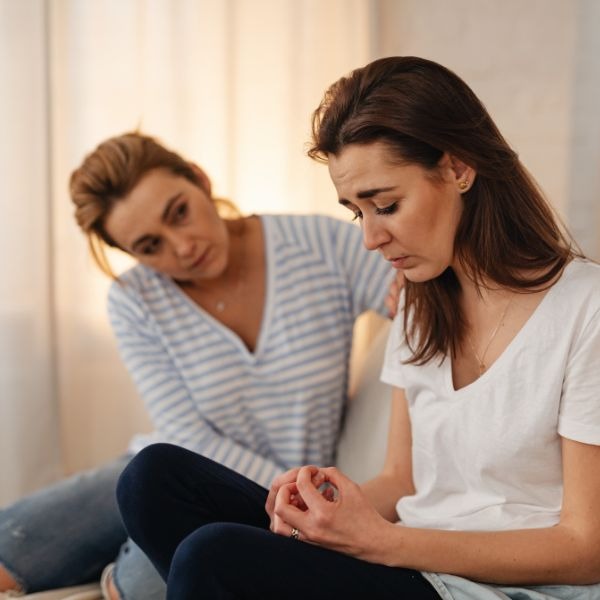

When you lose a parent, your entire world feels off-balance. Priorities that once seemed essential—like brunches, gossiping about work stress, or planning weekends away—suddenly don’t resonate.
Grief has a way of reordering your internal checklist overnight, leaving you searching for meaning and purpose in deeper, quieter ways.
This shift can create a gap between you and friends who are still navigating the joys and challenges of their own lives. Their reality hasn’t changed, while yours is unrecognizable.
It’s not that you no longer care about them; it’s that your energy is now focused on survival, healing, and making sense of life without your parent.
Sometimes, it feels like trying to speak two different languages—you’re looking for depth and solace while your friends may unintentionally offer surface-level distractions.
These differences don’t mean the friendships are doomed, but they do require adjustment, patience, and sometimes a willingness to let some relationships fade naturally if they no longer bring you peace.
Shifts in Priorities and Lifestyle
One of the hardest parts of grief is realizing that not everyone knows how to support you.
Close friendships may begin to feel strained because your friends don’t understand the depths of your pain.
You might hear comments like, “Let me know if you need anything,” which, while well-meaning, can feel hollow when all you need is for someone to simply sit with you.
Alienation often stems from mismatched expectations. Perhaps you expect your best friend to check in, but they assume giving you space is more helpful.
Maybe they’re afraid of upsetting you by mentioning your loss, or they don’t know what to say and choose silence.
That silence can echo loudly, leaving you questioning the depth or authenticity of these relationships.
It’s also worth acknowledging that some friends might pull away entirely—not because they don’t care, but because your grief mirrors their own fears or unresolved losses.
While this realization is painful, it’s also freeing in a way. You start to understand who’s capable of walking beside you in the storm and who isn’t.
Feeling Alienated From Close Friends
Grief is a magnifying glass. It highlights the people in your life who truly show up, even if it’s in small but meaningful ways.
You start to notice the friends who send random check-in texts, who bring you coffee without asking, or who listen without needing to “fix” you. These are the ones who become your lifelines.
True support doesn’t always look grand or elaborate—it can be as simple as someone saying, “I don’t know what to say, but I’m here.”
These moments of honesty and vulnerability often deepen your appreciation for the relationships that stand the test of grief.
It’s not just about who shows up for the funeral; it’s about who shows up afterward, during the mundane, lonely days when you’re trying to rebuild your life.
Sometimes, you’ll also discover new people entering your world—other women who have walked this road and know its twists and turns without needing an explanation.
These unexpected connections can feel like stumbling upon a life raft in rough waters.
They remind you that even though you’ve lost a parent, you haven’t lost the ability to build meaningful, supportive friendships.
As you navigate this path, remember to be gentle with yourself. It’s okay to crave solitude or to seek out lighter, low-maintenance connections alongside the deeper ones.
Your support system isn’t just limited to those closest to you—it’s made up of anyone who offers you the care, understanding, or unspoken camaraderie that helps you carry the weight of grief.
Through this process, you redefine what friendship means and discover the people who truly see you, even in your darkest moments.
Discovering True Support Systems

Changes in Romantic Relationships
Losing a parent isn’t just a personal loss—it’s one that seeps into every part of your life, including your romantic relationships.
As grief takes hold, it often acts like a magnifying glass, exposing the dynamics between you and your partner with unrelenting clarity.
It can either deepen your bond or make the cracks harder to ignore.
This doesn’t mean your relationship is destined to fail or succeed; it just means the loss forces you to confront things about your connection that you may not have noticed before.
Let’s break this down further.


Grief doesn’t simply knock on the door—it barges in, uninvited, and claims a seat in your relationship.
For many women, the death of a parent creates a unique emotional storm—one that their partner is suddenly a part of, whether they’re ready or not.
You might feel more emotionally raw than ever, needing comfort, reassurance, and emotional presence from your partner.
But here’s the catch: grief looks different for everyone, and your needs may not align with what your partner expects or feels comfortable offering.
In some cases, the shared vulnerability can lead to deeper emotional intimacy. The grief becomes a shared journey, with conversations that reveal layers of yourselves you hadn’t yet explored.
Maybe your partner becomes your rock, steady and grounding when everything else feels unstable.
But it’s not always seamless. Grief can also create emotional distance. You might withdraw, unsure how to explain what you’re feeling.
Or your partner may struggle to understand your complicated emotions, unintentionally leaving you feeling unheard.
Emotional intimacy requires effort from both sides, and grief has a way of showing just how strong—or how fragile—that connection really is.
So, what can you do? Start with open communication, even when it feels awkward or incomplete.
Saying something as simple as, “I don’t know how to explain this, but I just need you here,” can go a long way.
And if either of you stumbles, remember that grief isn’t linear, and neither is navigating it as a couple.
Pressure on Emotional Intimacy
Grief is messy. It’s overwhelming, unpredictable, and often shows up in ways neither you nor your partner expect.
This emotional chaos can lead to misunderstandings, even over the smallest things.
You might find yourself irritated by their silence, wishing they’d know exactly what to say.
Or maybe they try to offer solutions when all you want is someone to sit with you in your sadness.
It’s like you’re speaking two different emotional languages, both trying to do the right thing but missing the mark.
Conflict during grief isn’t unusual, but it can feel exhausting when you’re already emotionally drained.
Fights might erupt over things that seem minor—like household responsibilities, how much space you need, or differing expectations about how to “move forward.”
Sometimes, the grief itself becomes a source of tension when one partner feels ignored or unsupported.
How do you break the cycle? It starts with patience—for yourself and your partner. Acknowledge that neither of you has all the answers.
Use “I feel” statements instead of accusations.
For instance, saying something like, “I feel lonely when you don’t check in after work,” focuses on your emotions rather than placing blame.
If possible, consider grief counseling together—it normalizes the experience and gives you tools to navigate the more challenging moments.
Above all, remember that your partner is human, too. They may not always say or do the “right” thing, but their intention matters.
By making space for grace and forgiveness, you can begin to untangle the misunderstandings grief can weave into your relationship.
Navigating Misunderstandings
Believe it or not, grief has the potential to bring you and your partner closer—it’s just not always an easy process.
Loss has a way of highlighting what’s truly important while stripping away the superficial.
For some couples, this creates an opportunity to build something stronger, rooted in shared understanding and resilience.
You don’t have to be perfect to grow together. Growth might look like crying in their arms without feeling the need to apologize.
It might mean finally talking about how scared you are of losing someone else, while your partner listens with no intention other than to be present.
These moments, though imperfect, lay the groundwork for a deeper, more honest connection.
Here are a few suggestions to grow through grief as a team:
Set small, realistic goals for support: Maybe you agree to regular check-ins to see how you’re coping. Or you make it a priority to spend time together, even if it’s just watching a show in silence.
Acknowledge the loss as a shared experience: Even though you’re the one grieving, the loss impacts your partner, too. Invite them into your grief when you’re ready—by sharing memories, attending a memorial, or simply letting them be present when you talk about your parent.
Celebrate small wins: On days when the grief feels less heavy, take a moment to acknowledge it together. Those moments of lightness are a sign that you’re moving forward, even if it doesn’t always feel like it.
Growing through grief doesn’t mean the pain disappears.
It means you’re building a relationship that is capable of holding both joy and sorrow.
It’s a testament to your love—and that’s something worth fighting for.
Growing Together Through Grief
Building New Connections and Support Systems
The loss of a parent brings a seismic shift to your world. It alters not only your emotional landscape but also how you relate to others.
As you navigate this unfamiliar terrain, one of the most important—and challenging—steps you can take is to build or rebuild connections that will support you through the journey.
Grief is deeply isolating by nature, but meaningful relationships can serve as a lifeline, grounding you in moments when the weight of loss feels too much to bear.
Let’s explore how to foster these connections while honoring the pain you're carrying.
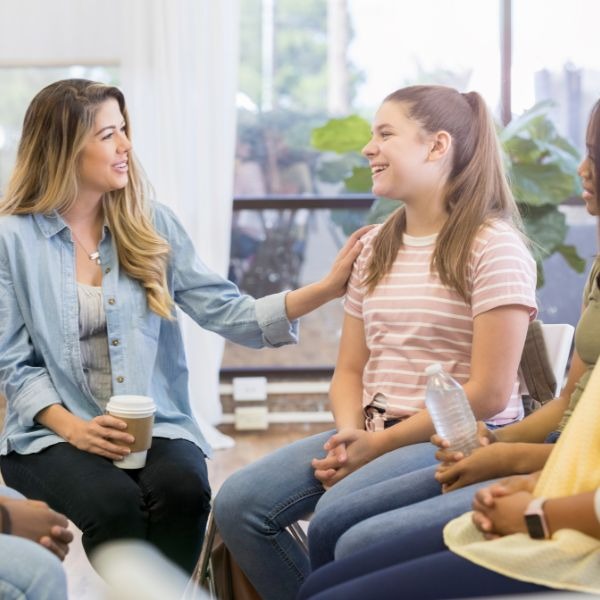

When it feels like no one truly gets what you’re going through, connecting with others who have experienced a similar loss can feel like a life preserver in a stormy sea.
Support groups, both in-person and virtual, create a space where you don’t have to explain yourself—everyone already understands, because they’ve felt it too.
Joining a grief support group can help reduce the isolation that loss often brings. Groups like GriefShare or online forums such as Grief in Common cater specifically to those grieving a parent.
These spaces allow you to share your story without fear of judgment, hear how others are coping, and even gain practical advice for handling the day-to-day challenges that come with grief.
If formal groups feel intimidating, consider smaller settings. Social media platforms have closed communities dedicated to grieving parents, some even tailored to specific age groups or circumstances.
For example, a Facebook group called “For People in Their 20s & 30s Who Have Lost a Parent” offers relatable, peer-driven support.
Remember, these connections don’t replace the love you’ve lost—they allow you to carry that love forward.
Sharing your pain doesn’t diminish it; instead, it distributes the emotional weight, reminding you that you’re never truly alone in your grief.
Finding Community Among Peers Who Understand
Grief doesn’t just change you—it changes your relationships, too.
You may feel betrayed by friends who didn’t show up in the way you needed or let down by people who failed to reach out entirely.
Rebuilding trust after such disappointments takes time, but it’s not impossible.
Start by being honest about your boundaries and emotional needs. If someone’s silence hurt you, consider initiating a conversation—assuming you feel safe and comfortable doing so.
It’s okay to say something like, “I struggled when you weren’t there—I want us to work through that because I value our friendship.”
Be patient with new connections as well. Trust takes time to rebuild, especially when grief leaves you feeling raw and vulnerable.
Look for small, consistent actions: a friend who texts to check in, a neighbor who offers a kind word, or a coworker who listens when you vent.
These moments may feel small, but they signal emotional reliability—the cornerstone of meaningful relationships.
Finally, don’t overlook the importance of self-trust. Loss challenges your sense of stability, making it harder to trust your own instincts.
But as you open yourself to relationships again, you’ll find that your inner compass, while shaken, still points in the right direction.
Rebuilding Trust After Relationship Changes
There’s no rulebook for grief, and there’s certainly no manual for balancing the relationships you already have with the new ones you’re building.
You might feel stretched thin, torn between nurturing old friendships and exploring connections with those who better understand your pain.
It’s a delicate juggling act.
Start by evaluating your emotional energy. Some days, you may feel drawn to the familiarity of long-term friends who knew your parent.
Other times, you may find solace in newer relationships with people who share your grief experience. Neither choice is wrong—it’s about what supports you in the moment.
For your existing relationships, focus on communication and patience. Many friends or family members may want to help but feel lost about how to do so.
Be open about what you need, whether it’s a late-night phone call or simply someone to sit with you in silence.
When cultivating new friendships, don’t rush. Letting people into your life after such a profound loss takes courage, and it’s okay to tread carefully.
These relationships often form organically as you intersect with others who share your experience—through a support group, social media community, or even chance encounters at events honoring loved ones.
Ultimately, you don’t have to choose between old and new relationships.
Instead, think of them as different branches on the same tree—growing at their own pace but still rooted in the shared soil of your life.
While some branches may wither and fall away, others will flourish, offering strength and shade as you continue forward.
Balancing Old and New Relationships
Losing a parent changes you—and it changes the way you relate to the world and the people in it.
While grief can feel isolating, it also holds the potential for profound growth. Relationships shift, yes, but this isn’t always a loss.
It’s an opportunity to see who can meet you where you are, who will walk with you into this new chapter, and where meaningful connections can be built—even with those you least expect.
Don’t be afraid to lean into the changes. Let go of what no longer serves you, and allow space for the connections that bring comfort, understanding, and peace.
Grief doesn’t mean the end of love and connection; it’s a reminder of how deeply you’ve loved—and proof that you’re more than capable of finding new ways to heal, connect, and thrive.
You’ve got this.
